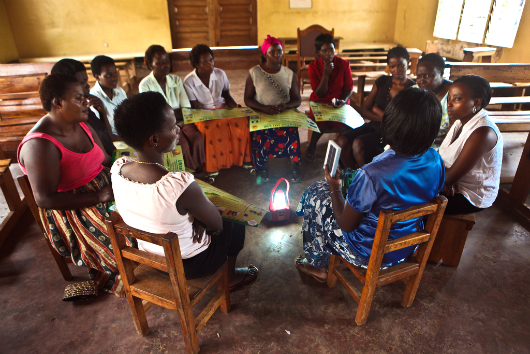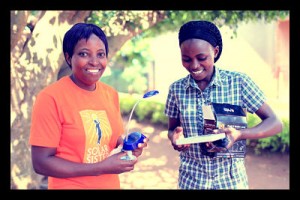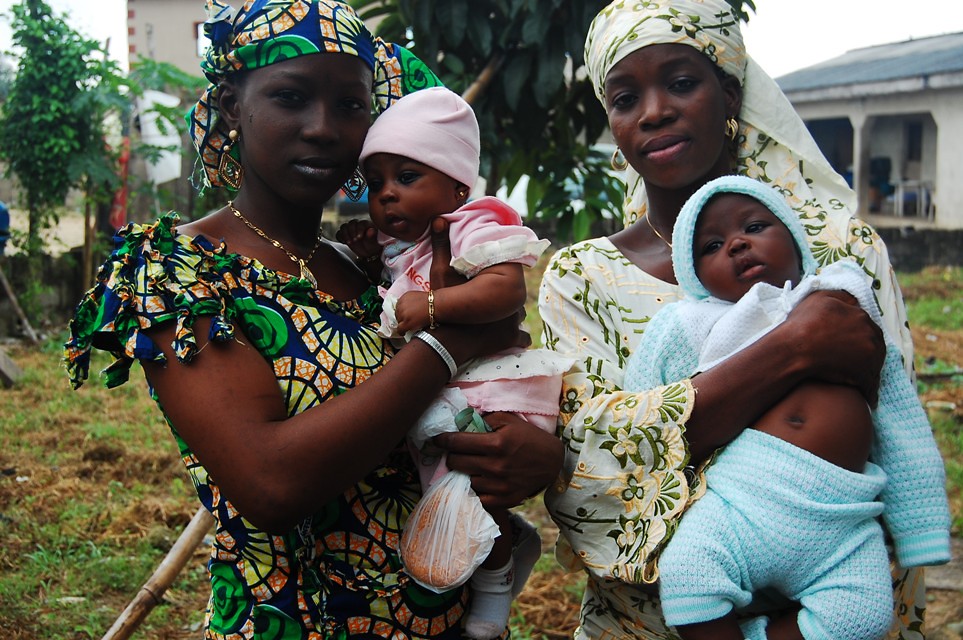
All over sub-Saharan Africa, many initiatives are seeking to address poverty and improve people’s lives amid fears of escalating hunger and extreme poverty. The World Bank reported that sub-Saharan Africa would note a decrease in economic growth from 4.1% in 2021 to 3.3% in 2022 due to sluggish global economic growth, the war in Ukraine and extreme weather conditions. Social enterprises keep hope alive by stepping up to address the effects of poverty on the most vulnerable and disadvantaged people. A social enterprise is a business with social objectives. While these businesses do seek to make profits, the enterprises maximize benefits to society and the environment by bringing relief to the most vulnerable sections of the communities. In particular, several African social enterprises look to address poverty in the region.
Pad-Up Creations
Olivia Onyemaobi founded Pad-Up Creations in May 2016 in Minna in Niger State of Nigeria. This Nigerian social enterprise aims to address period poverty in Nigeria. Period poverty refers to girls’ and women’s lack of access to menstrual products and hygiene facilities to properly manage menstruation. Onyemaobi launched a campaign in 2015 to provide female victims of sexual abuse with counseling and rehabilitation. Onyemaobi also noted a link between period poverty and sexual abuse.
Out of the 1,500 girls who received counseling, 68% had infections from using unsanitary alternatives to manage their menstruation and 79% typically did not attend school when menstruating due to a lack of access to menstrual supplies. Furthermore, 70% regret being female due to their menstruation and 95% reported engaging in sexual encounters to enable them to buy menstrual products.
Pad-Up Creations manufactures affordable washable and reusable sanitary pads that last up to a year, saving females from the monthly costs of menstrual supplies and ensuring girls stay in school. According to Onyemaobi, Pad-Up Creations reached more than 100,000 girls in Nigeria by 2017 but now has outlets in 18 African countries reaching millions of women and girls. Aside from reducing poverty, the social enterprise is also empowering other women economically. More than 300 females work in the factory in Minna while others are distributors of the products earning minimal profits.
Solar Sister
Solar Sister is another one of the African social enterprises empowering and helping women across sub-Saharan Africa. It invests in women and “clean energy businesses in off-grid Africa.” It is a movement of women, men, allies and partners with a mission to eradicate energy poverty by “empowering women with economic opportunity.”
Solar Sister initially came about in 2010 through the efforts of two women, a Ugandan banker, Katherine Lucey, and an Indian energy economist, Neha Misra, whose visits to remote areas in their different localities inspired them to build social enterprises around women, focusing on affordable clean energy. Three other women, Evelyn Namara of Uganda, Fatma Muzo of Tanzania and Olasimbo Sojinrin of Nigeria, boosted these efforts by launching operations in their respective countries.
According to the World Bank, just 48% of people in sub-Saharan Africa had access to electricity in 2020. Furthermore, just 18% of people in this region had “access to clean fuels and technologies for cooking” in the same year. The detrimental effects of household air pollution led to about 500,000 premature deaths in sub-Saharan Africa in 2018.
Against this backdrop, Solar Sister produces and provides clean stoves for cooking and solar solutions for lighting and charging batteries. So far, across three African countries, Solar Sister has reached more than 3.5 million people and has sold more than 700,000 clean energy products. Furthermore, the enterprise has helped 8,500 people become entrepreneurs by selling its solar products, 87% of whom are women.
Farm On Wheels
Farm On Wheels is a Nigerian social enterprise whose vision is to help smallholder farmers in hard-to-reach locations in Niger State, Nigeria. Its mission is to take knowledge, skills, improved seeds and agrochemicals to farmers in remote locations in order to assist them in increasing their yields and accessing markets for their products, making them gainfully employed and financially empowered. Jocelyne Agbo founded the enterprise in 2017 as an alumnus of the Tony Elumelu Foundation.
Because smallholder farmers in Nigeria live and work in remote locations with little knowledge of or access to advancements, they tend to stick to traditional agricultural practices at the subsistence level. Farm On Wheels brings advancements to rural farmers in leaps by helping to increase their yields and giving them access to bigger markets, making their farming endeavors more economically viable.
Between May 2021 to April 2022, Farm On Wheels partnered with the Feed the Future Nigeria Agribusiness Investment Activity, a USAID-funded activity implemented by Cultivating New Frontiers in Agriculture (CNFA). To improve yields and production, Farm on Wheels distributed “input loans” totaling 24 million nairas ($58,151 USD) to 500 farmers, including 100 youth farmers in Niger State.
These three African social enterprises fill the gap between government action and the hard-to-reach, vulnerable people living in sub-Saharan Africa, thereby, lifting many out of poverty.
– Friday Okai
Photo: Flickr
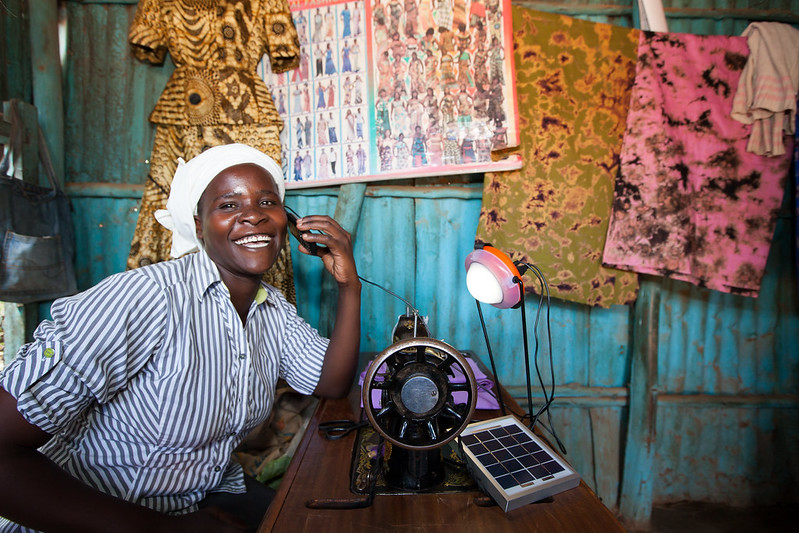 Providing women with access to clean energy is crucial in the fight against poverty and gender inequality. Women experience energy poverty at higher rates than men and are more likely to die from indoor air pollution caused by nonrenewable household energy solutions. When women have access to electricity, they have greater opportunities to pursue an education, find employment and become civically involved. This article examines three renewable energy initiatives that empower women to create change within their communities and lives.
Providing women with access to clean energy is crucial in the fight against poverty and gender inequality. Women experience energy poverty at higher rates than men and are more likely to die from indoor air pollution caused by nonrenewable household energy solutions. When women have access to electricity, they have greater opportunities to pursue an education, find employment and become civically involved. This article examines three renewable energy initiatives that empower women to create change within their communities and lives.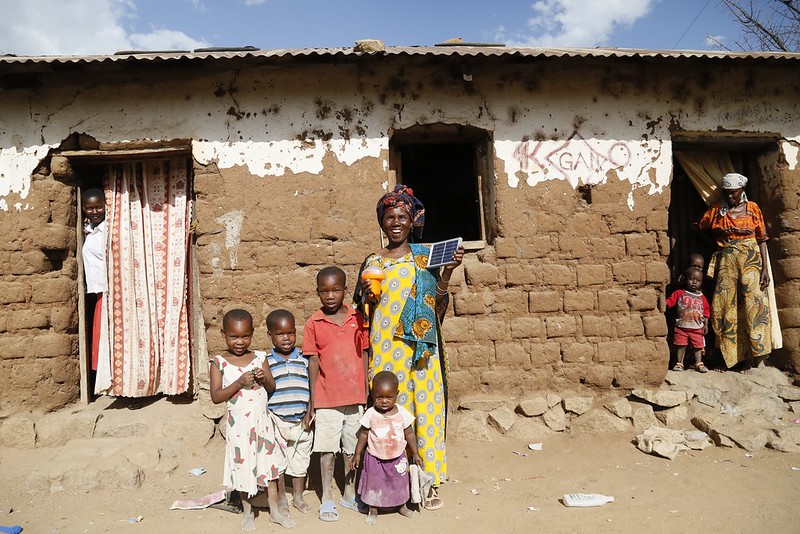 With nearly 75% of rural Africa lacking access to electricity and only
With nearly 75% of rural Africa lacking access to electricity and only 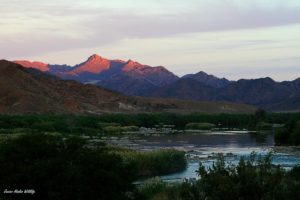 Conservation efforts aim to preserve nature and ensure the proper utilization of natural resources. In recent decades, conservation has
Conservation efforts aim to preserve nature and ensure the proper utilization of natural resources. In recent decades, conservation has 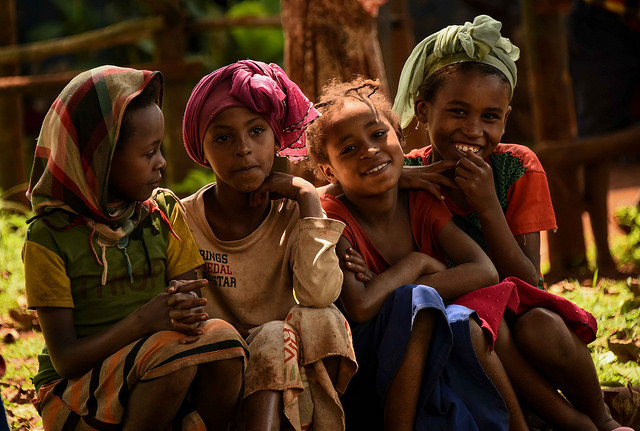 Currently, there is an energy disparity worldwide, and not everyone has equal access to energy resources. This growing trend is most notable in less developed nations, most particularly in rural regions of the countries. Energy is one of the most vital resources for the development of a nation; without it, countries are left to follow a path with no progression.
Currently, there is an energy disparity worldwide, and not everyone has equal access to energy resources. This growing trend is most notable in less developed nations, most particularly in rural regions of the countries. Energy is one of the most vital resources for the development of a nation; without it, countries are left to follow a path with no progression.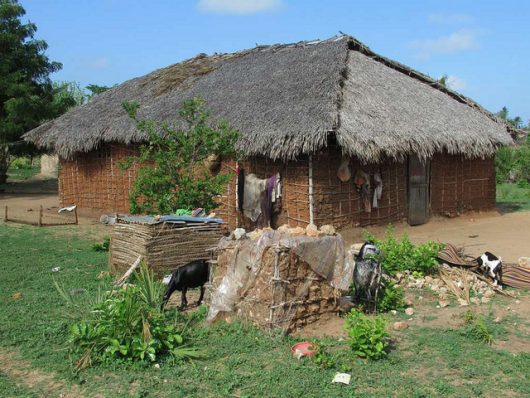 There are many countries in need of foreign assistance. Among
There are many countries in need of foreign assistance. Among 